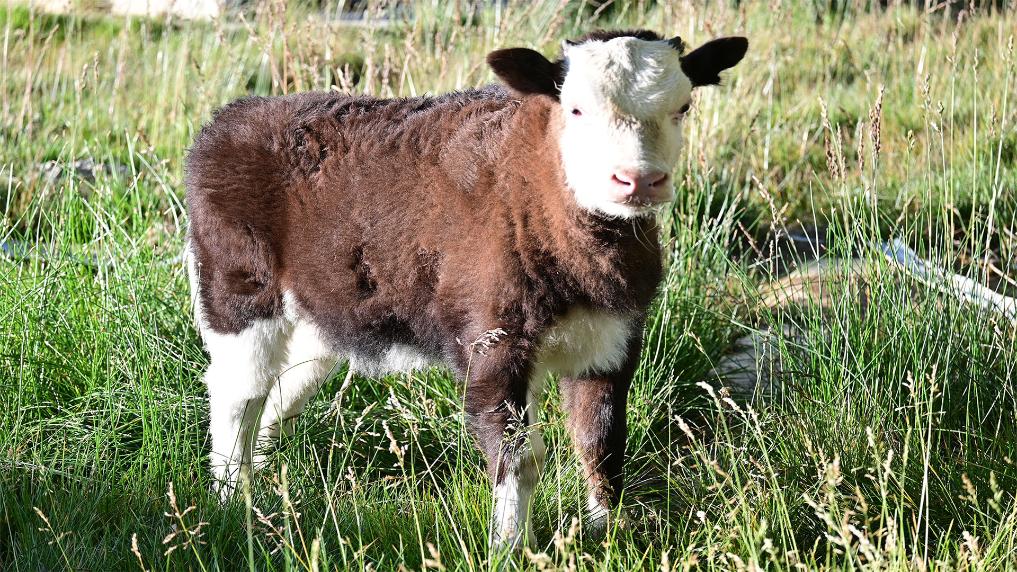World's first somatic cell-cloned dzo born in China's Xizang


BEIJING -- Chinese scientists have announced the birth of the world's first somatic cell-cloned dzo in China's Xizang autonomous region. This marks a critical breakthrough in high-altitude breeding technology, which is vital for improving plateau livestock and protecting endangered species.
The newborn male calf, weighing 26 kilograms, was delivered via caesarean section. Rigorous genetic testing confirmed it is an exact genetic replica of the donor dzo. It has now survived for over two months in good health, the Science and Technology Daily reported on Friday.
This achievement was made by a collaborative team from the Institute of Animal Sciences (IAS) under the Chinese Academy of Agricultural Sciences (CAAS), the academy of agricultural and animal husbandry sciences and the animal husbandry and veterinary station in Xizang, as well as China Agricultural University, and Northeastern University.
The team said the test was approved by relevant authorities and complied with ethical norms.
"This marks the first successful application of somatic cell cloning in situ on the plateau specifically for the conservation and utilization of locally adapted genetic resources," said Yu Dawei, a researcher with the CAAS-IAS who led the research team.
The dzo, a hybrid resulting from crossing female yaks and male cattle, is uniquely adapted to the harsh Qinghai-Tibet Plateau and offers superior economic benefits.
In addition to their impressive dairy output, dzos are known for their high meat yield efficiency, rich nutritional value, and strong draft capabilities, making them significantly more economically valuable than conventional plateau cattle species.
However, the critical roadblock to fully realizing these advantages is the infertility of male dzos, which hinders the natural propagation of their desirable genetics.
Advanced bovine embryo production and transfer techniques essential for breeding have also been underdeveloped in Xizang. Therefore, dependence on repeated artificial crossing has increased costs and hindered large-scale industrialization.
The researchers extracted somatic cells from the ear of a nine-year-old adult dzo. The cell nucleus was then transferred into an enucleated cattle egg cell to create a cloned embryo.
This embryo was implanted into a surrogate dzo cow, which carried the pregnancy through the challenging high-altitude conditions, including low temperatures and reduced oxygen levels.
It finally gave birth to a male calf on May 12 at a county experiment station in the regional capital Lhasa.
"This precise cloning technology allows the stable inheritance of desirable traits like high yield and environmental resilience. It paves the way for mass propagation of high-quality breeding stock," said Yu.
Cloning in high-altitude, low-oxygen environments presents extraordinary scientific challenges.
"Our team overcame these difficulties through key technical innovations, including developing a specialized plateau-adapted embryo culture system, ensuring early development through precise control of parameters like temperature and pH," said Yu, adding that the research team also optimized protocols for surrogate mother selection to improve pregnancy success rates.
Beyond dzos, the validated system makes the gene banking and potential future restoration within their native habitat of other endangered plateau species, such as Tibetan antelope and wild yaks, a tangible possibility, according to Yu. "It is expected to establish a crucial technological safeguard for highland biodiversity."
- World's first somatic cell-cloned dzo born in Xizang
- Xi congratulates Simons on election as Surinamese president
- World's most powerful direct-drive floating wind turbine unveiled in China
- China completes 'power expressway loop' around southern Xinjiang desert
- China says response to Japanese planes' actions reasonable, professional
- Gansu sets up team to probe abnormal blood lead levels in children





































